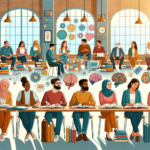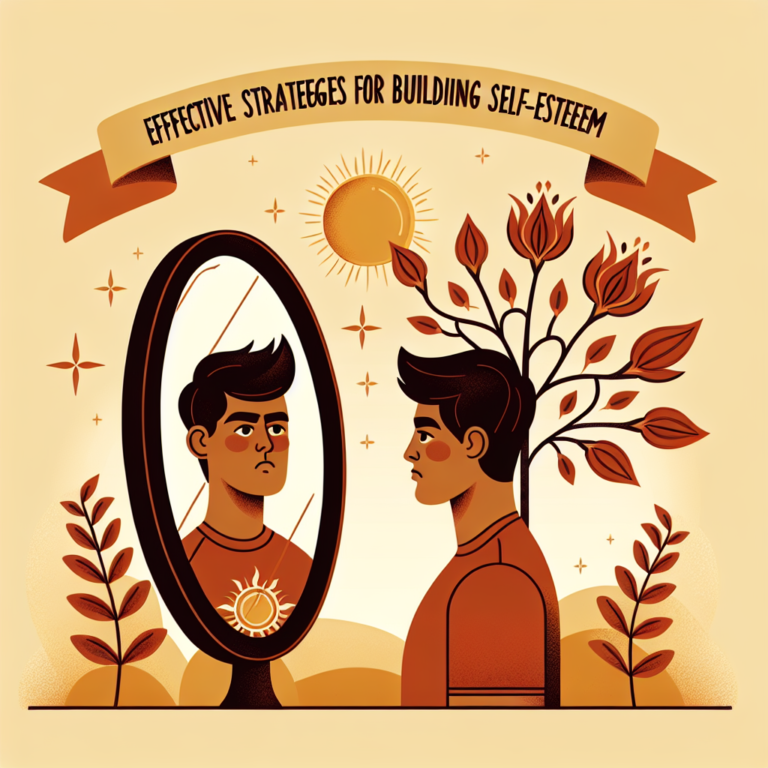
Finding Your Way Back: The Hidden Mental Health Consequences of Loneliness – An Essential Guide to Reclaiming Connection
Introduction
In the tapestry of human existence, social connection is the thread that binds us. Yet, in a world where technology has redefined interaction and physical distances can feel insurmountable, many find themselves facing a profound silence: loneliness. Increasingly recognized as a pressing issue, loneliness goes beyond merely feeling alone. It permeates our mental health, affecting our well-being in ways we are only beginning to understand. This article, “Finding Your Way Back: The Hidden Mental Health Consequences of Loneliness,” seeks to unravel the complexities of loneliness and explore its invisible effects on mental health, offering valuable insights and pathways to reconnect.
The Loneliness Epidemic
Loneliness is not confined to the elderly or those living alone; it can affect anyone, regardless of age or social status. Research has shown that approximately 60% of adults report feelings of loneliness at some point in their lives. Psychologists argue that the rise of social media, while fostering virtual connections, has paradoxically intensified feelings of isolation. The question is: how does loneliness manifest in our minds, and what can we do about it?
Understanding Loneliness: A Psychological Perspective
Distinguishing Loneliness from Solitude
It’s crucial to distinguish between loneliness and solitude. While solitude can be a source of rejuvenation and self-discovery, loneliness is characterized by a painful emotional response to perceived social isolation. According to Dr. John Cacioppo, a leading psychologist in the study of loneliness, perceived social isolation can lead to significant health risks, comparable to smoking or obesity.
The Mental Health Consequences of Loneliness
Increased Anxiety and Depression
One of the most immediate and observed consequences of loneliness is the rise in anxiety and depression. A study published in the American Journal of Psychiatry found a direct correlation between feelings of loneliness and increased rates of anxiety disorders. This relationship is cyclical; loneliness incites anxiety, which further alienates individuals, creating an insidious cycle of despair.
Cognitive Decline and Dementia
Loneliness has emerged as a risk factor for cognitive decline and dementia. Research from the University of California found that socially isolated individuals had a 50% higher risk of developing dementia compared to their connected peers. The implications are staggering, suggesting that investing in social relationships could impact not only emotional health but cognitive longevity.
Case Study 1: The Impact of Isolation on College Students
In a case study exploring the mental health of college students, researchers noted that nearly 70% reported feeling isolated despite living in close quarters. Many students turned to social media to bridge the gap, yet findings indicated that these online interactions often exacerbated feelings of loneliness. The study highlighted the need for universities to prioritize mental health services and community-building activities. The strategies employed can serve as a blueprint for addressing loneliness among young adults.
The Hidden Costs of Loneliness
Physical Health: A Silent Toll
Loneliness does not just affect mental health; it takes a physical toll too. Studies indicate that lonely individuals are more likely to experience chronic diseases such as heart disease and hypertension. A major report from the Heart Association revealed that loneliness could increase your risk of a heart attack by 29%. These statistics compel us to look beyond emotional distress and consider the broader implications of isolation.
A Social Experiment: The Effects on the Workplace
In workplaces across the globe, loneliness is now recognized as a crucial factor affecting employee productivity and satisfaction. A survey by Gallup found that lonely employees are less engaged and more likely to leave their jobs. Companies that foster a sense of community and connection reported higher retention and greater employee satisfaction. This case demonstrates that addressing loneliness is not only a personal concern but a societal and economic necessity.
Empathy and the Path to Connection
Understanding Emotional Pain
To counteract loneliness, we must first foster empathy. Understanding the emotional pain associated with feeling isolated is the first step toward breaking the cycle. It requires proactive measures to check in on those around us who may be struggling, both in our personal and professional lives.
Strategies for Reconnection: Finding Your Way Back
Developing Meaningful Relationships
Meaningful relationships are not built overnight but developed through shared experiences and trust. Strategies such as engaging in community activities, joining clubs, or pursuing hobbies can provide platforms for meaningful connection. Volunteering has also been shown to significantly boost social well-being.
Mindfulness and Self-Reflection
Mindfulness practices, such as meditation and journaling, can help individuals reconnect with themselves and others. Engaging in honest self-reflection can illuminate what you truly seek from your relationships and help you identify barriers to forming connections.
Case Study 2: Rebuilding Community Ties in Urban Spaces
In a groundbreaking community initiative in Chicago, residents faced escalating loneliness following the city’s economic downturn. The local government partnered with mental health professionals to design community engagement programs, including weekly meetups and skill-sharing workshops. The program led to a noticeable decrease in reported loneliness rates, highlighting the power of community-driven initiatives. This case study illustrates the potential for societal solutions to address loneliness.
The Role of Technology: A Double-Edged Sword
Digital Connection Versus Authentic Interaction
Technology has transformed the way we communicate, with platforms like Facebook and Instagram providing immediate access to a wide network. Nonetheless, studies suggest that excessive reliance on digital communication can lead to shallow interactions. Finding your way back begins with recognizing the difference between digital and authentic connections and setting boundaries around technology use.
Conclusion
In conclusion, “Finding Your Way Back: The Hidden Mental Health Consequences of Loneliness” emphasizes the vast and often invisible implications of feeling alone. As we navigate an increasingly fragmented world, it is critical to acknowledge the mental health effects of loneliness. By understanding its roots and consequences, we can take proactive steps toward reconnecting not only with ourselves but also with the people around us, paving the way for a healthier, more connected existence. Seeking connection is not merely a personal endeavor; it is a collective need that binds humanity together.
FAQs Section
1. What are the main causes of loneliness?
Loneliness can stem from various factors, including social anxiety, major life changes (such as moving to a new city), loss of a loved one, or even digital reliance over face-to-face interactions.
2. Can loneliness affect physical health?
Yes, loneliness has been linked to a range of physical health issues, such as increased risk of heart disease, hypertension, and weakened immune function.
3. How can I support a friend who is feeling lonely?
You can support a friend by reaching out regularly, inviting them to social activities, or simply being a listening ear. Showing empathy and understanding can make a significant difference.
4. What are some activities that can help combat loneliness?
Engaging in community service, joining clubs or groups that align with your interests, and pursuing hobbies can help create meaningful connections and combat feelings of loneliness.
5. Is loneliness a mental health disorder?
Loneliness itself is not classified as a mental health disorder but is often associated with various mental health issues, including anxiety and depression. Understanding and addressing loneliness can be vital to improving overall mental health and well-being.
By illuminating the hidden mental health consequences of loneliness, this guide endeavors to inspire readers to reach out, connect, and find their way back to healthier relationships, ultimately fostering a more empathetic and connected world.

















